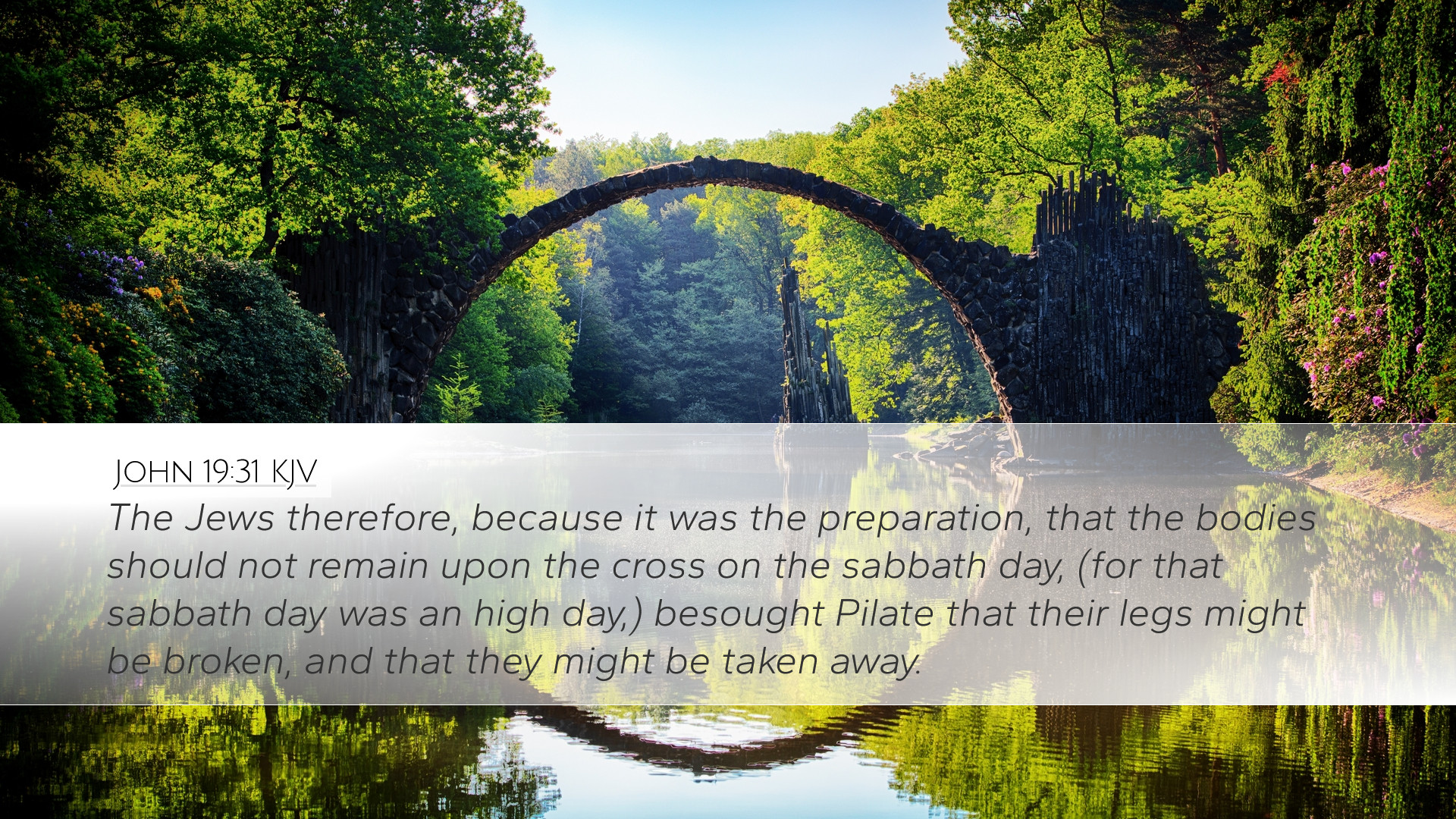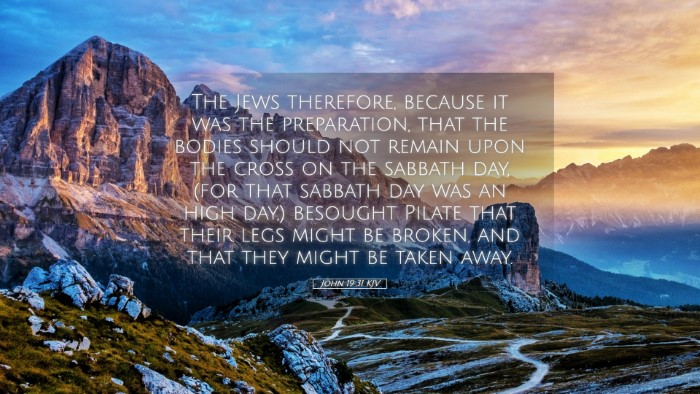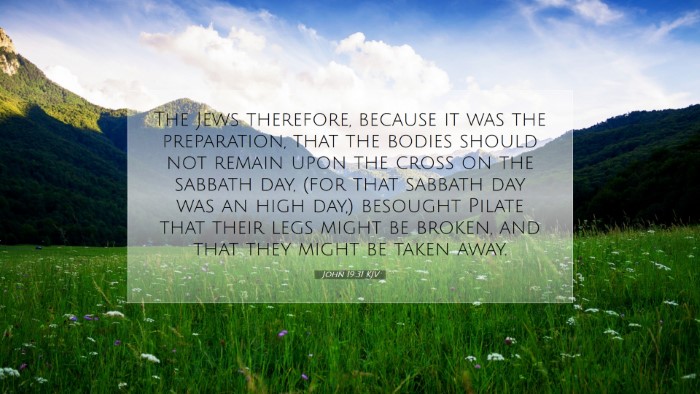Commentary on John 19:31
Verse: "Therefore because it was the preparation, that the bodies should not remain upon the cross on the sabbath day, for that sabbath day was an high day, besought Pilate that their legs might be broken, and that they might be taken away." (John 19:31)
This poignant verse in the Gospel of John captures the somber atmosphere surrounding the crucifixion of Jesus Christ and the events that transpired thereafter. A confluence of legalism, theological significance, and profound fulfillment of prophecy is illustrated throughout this passage. Several esteemed commentators offer insights that can enrich our understanding of this text.
Historical and Cultural Context
Understanding the context of this verse is crucial for interpreting its significance. The 'preparation' day marks the time leading up to the Sabbath, and it is on this day the Jewish people would prepare for their day of rest. The phrase "high day" refers to the special nature of the Sabbath coinciding with the Passover, which is an important component of the Jewish religious calendar.
The Legalism of the Pharisees
According to Matthew Henry, the request made to Pilate by the Jews illustrates their strict adherence to the law, even at the expense of compassion. They sought to remove the bodies from the crosses before the Sabbath began, rationalizing their actions under the guise of religious adherence. This demonstrates a disconnect between genuine faith and legalistic practices.
Theological Significance
Adam Clarke emphasizes the theological implications of this verse. The bodies of the crucified thieves were to be removed in order to prevent defilement of the land on the Sabbath. This removal also serves as a prelude to the resurrection; Jesus' body would not remain on the cross, signifying that He would soon conquer death and sin.
Application for Believers
Albert Barnes provides a reflective perspective on how this verse can be applied in the lives of believers today. The urgency demonstrated by the Jewish leaders highlights the importance of honoring God’s commands, yet also serves as a warning against rigid legalism that can overshadow the essence of faith.
True reverence for God is found not merely in the observance of laws, but rather in recognizing and living out the principles of love and grace that those laws were intended to reflect.
Prophetic Fulfillment
Moreover, Matthew Henry notes that the events surrounding this preparation day fulfill Old Testament prophecies. The breaking of the legs of the criminals was a cruel act aimed at hastening their death, thus ensuring no bodies lingered on the crosses. However, Jesus was the Passover Lamb, and as the Scriptures foretold, none of His bones were to be broken (Exodus 12:46, Psalm 34:20).
The Nature of the Sabbath
The Sabbath, recognized as a day of rest, takes on a deeper meaning within this verse. The day marks not just physical rest but symbolizes a time of spiritual renewal and contemplation. Adam Clarke points out that the Jewish leaders' urgency starkly contrasts the rest Jesus offered through His sacrifice—true peace and rest for the weary soul.
Implications for Leadership
This verse also presents implications for those in positions of leadership. Albert Barnes encourages leaders to reflect on their actions—do they lead with a heart of service to God and His people, or do they fall into the trap of legalism that prioritizes rules over relationships? The behaviors portrayed by the Jewish leaders serve as a cautionary tale for spiritual leaders today.
Conclusion
In conclusion, John 19:31 serves as a powerful reminder of the tension between law and grace, ritual and relationship. By examining this verse through the insights of esteemed commentators such as Matthew Henry, Adam Clarke, and Albert Barnes, we gain a richer interpretation that transcends its immediate context. It challenges pastors, scholars, and believers alike to reflect upon their own practices of faith, urging them to attain a deeper relationship with Christ—the Ultimate Sacrifice and True Rest.


